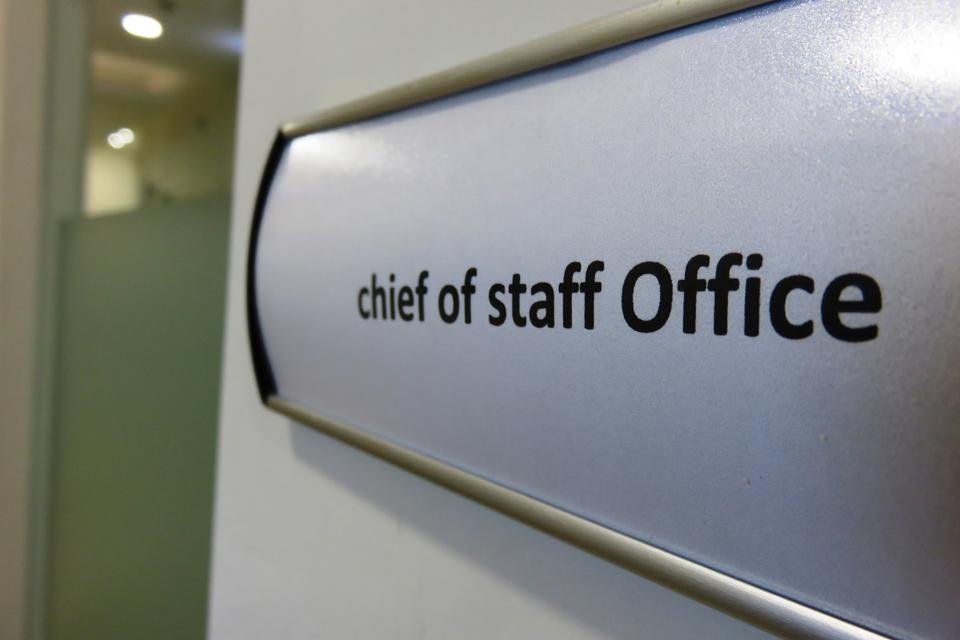Publications

Should You Treat Your Family Business Investment Like You Treat Your Stock Portfolio?
Rather than viewing themselves as a single operating company family-owned businesses should take a page from asset management firms by adopting a structured, professionalized approach. They should think in terms of a portfolio of assets, managed with a focus on long-term sustainability. Some say family-owned businesses (FOBs)—where emotional ties, legacy, and control outweigh financial considerations. The wisest families, however, will do both—adapting where necessary while preserving the values that made their enterprise successful in the first place.

Planning For The Unexpected Return: Lessons From Grubhub’s Founder
Why Do Founders Buy Back Their Businesses?Selling a company doesn't always mean closing the door for good. In some cases, owners find themselves wanting, or even needing, to regain control of the very businesses they once let go. From a planning perspective, it's critical to understand why owners might want to reclaim their former enterprises. While it may seem counterintuitive to want to buy back a company that was sold for a significant profit, there are many reasons why this occurs.

Are Deferred Sale Trusts A Tax-Efficient Way To Defer Capital Gains?
DSTs provide income deferral and asset control, but come with higher administrative costs, market risks and potential IRS scrutiny. CRTs and CLTs, in contrast, are highly tax-efficient for capital gains and estate planning purposes, especially for those with philanthropic goals. However, the irrevocable nature and charitable commitments can limit their applicability for those wishing to retain assets within their family.

Succession: The Brewing Controversy Over the Murdoch Family Trust
The Murdoch Family Trust, Rupert Murdoch's media empire, is embroiled in a significant dispute that has implications far beyond the world of media. As reported by The New York Times, this unfolding drama sheds light on the complexities of managing high-value assets—whether they be media companies, art collections, or estates.
The trust, established during Murdoch's 1999 divorce, was designed to grant voting rights to his older children while securing financial benefits for his younger ones. Now, at 93, Murdoch is in a legal battle with three of his four adult children over who will control the empire after his death. This situation echoes similar conflicts in other media dynasties and offers valuable lessons for anyone managing assets with high emotional and financial stakes.
Key Takeaways:
Succession Planning: Just as family businesses need clear plans for leadership transition, so too do artists and collectors to preserve their legacy.
Governance Structures: Establishing clear decision-making processes is essential to prevent disputes.
Common Goals: Aligning the interests of all stakeholders ensures long-term value preservation.
Professional Mediation: Neutral third parties can help navigate complex dynamics and protect the integrity of valuable assets.
Whether you're managing a media empire or a treasured art collection, the principles at play in the Murdoch case offer crucial insights for ensuring your legacy endures.

Why Having A Chief Of Staff For A Family Business Helps Avoid Disasters
The whole blame nor the whole praise for the failure or success of family businesses lies with the leadership or the collective family business organization. Leadership must understand that there are flaws within the family business organization; and, a leader is willing to undertake the institutional risks to fix those flaws.
Many times it requires more than just an Alpha leader but also a Beta leader, or a chief of staff from outside the organization, such as lawyer , accountant or other professional who is able to execute on the changes as they are needed

Family Business Sanity Check

What Do You Do When The Family CEO Suffers From Dementia?
The result of such strategic planning by the family, and advised by their professionals, is that the Family always has a “Plan B” to deal with difficult situations, and understand the time and costs needed to implement that Plan B if something like mental illness does strike. Without those strategic options, the family is thrown back onto the tactics available through the courts that may be surprisingly costly and time-consuming.

The Tragedy Of The Commons: How A Life Crisis Effects Family Wealth
“Strategic planning, governance, and business processes take a back seat to the immediacy of the leader’s life crisis and how the crisis will be managed, ignored, or denied by the leader and the stakeholders in the organization. Response to the crisis largely determines the future and well-being of the business and the family.” -Steven S. Rolfe, MD
In most cases, a family leader plays the role of the governor of the engine that is the family wealth. The leader has the personal authority to set agendas and make decisions between competing demands on the common resources of the family. So long as they are able to act in such a way, disputes do not rise to the level of threatening the viability of the family enterprise. In Systems Dynamics there is a name for this situation, The Tragedy of the Commons.
